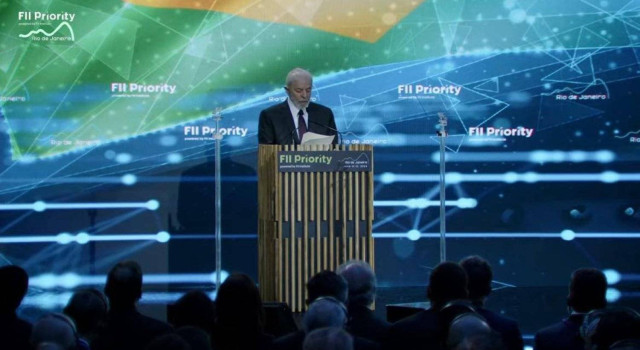Brazil’s President Luiz Inácio Lula da Silva has emphasized the significance of involving emerging nations in global economic discussions, underscoring the increasing influence of countries like Saudi Arabia and Brazil.
During his opening speech at the FII Priority Summit in Rio de Janeiro, President Lula pointed out that Brazil’s hosting of the Saudi Future Investment Initiative (FII) for the first time indicates the growing impact of emerging economies in global economic deliberations, surpassing traditional powerhouses.
Contrary to pessimistic forecasts, Brazil's GDP expanded by 2.5% in the past year, positioning the country to become the world's eighth-largest economy by the end of his term, Lula stated.
He also highlighted that in 2023, Brazil achieved a historic trade surplus, with exports from January to April reaching a record $108 billion, primarily driven by the manufacturing sector.
Lula expressed optimism about collaborating with Saudi Arabia for mutual benefit. He mentioned that Brazil is eager to establish a bilateral investment fund to explore unique opportunities and enhance its partnership with the Kingdom.
Yasir Al-Rumayyan, Governor of Saudi Arabia’s Public Investment Fund, expressed the fund’s interest in investing in Brazil, particularly in technology, renewable energy, and mining. He also expressed interest in investing in the Brazilian football landscape.
Al-Rumayyan stressed the PIF’s focus on entertainment and sports, pointing out that 70% of Saudi Arabia’s population is under 35. He highlighted PIF's significant initiatives in various sports, including football, and identified Brazil as an ideal location for such investments.
He explained that while 80% of PIF’s assets are invested in Saudi Arabia, the remaining 20%, approximately $200 billion, is invested internationally.
The total assets under management are around $1 trillion, with a target to reach $2 to $3 trillion by 2030. He emphasized that most investments are within




















